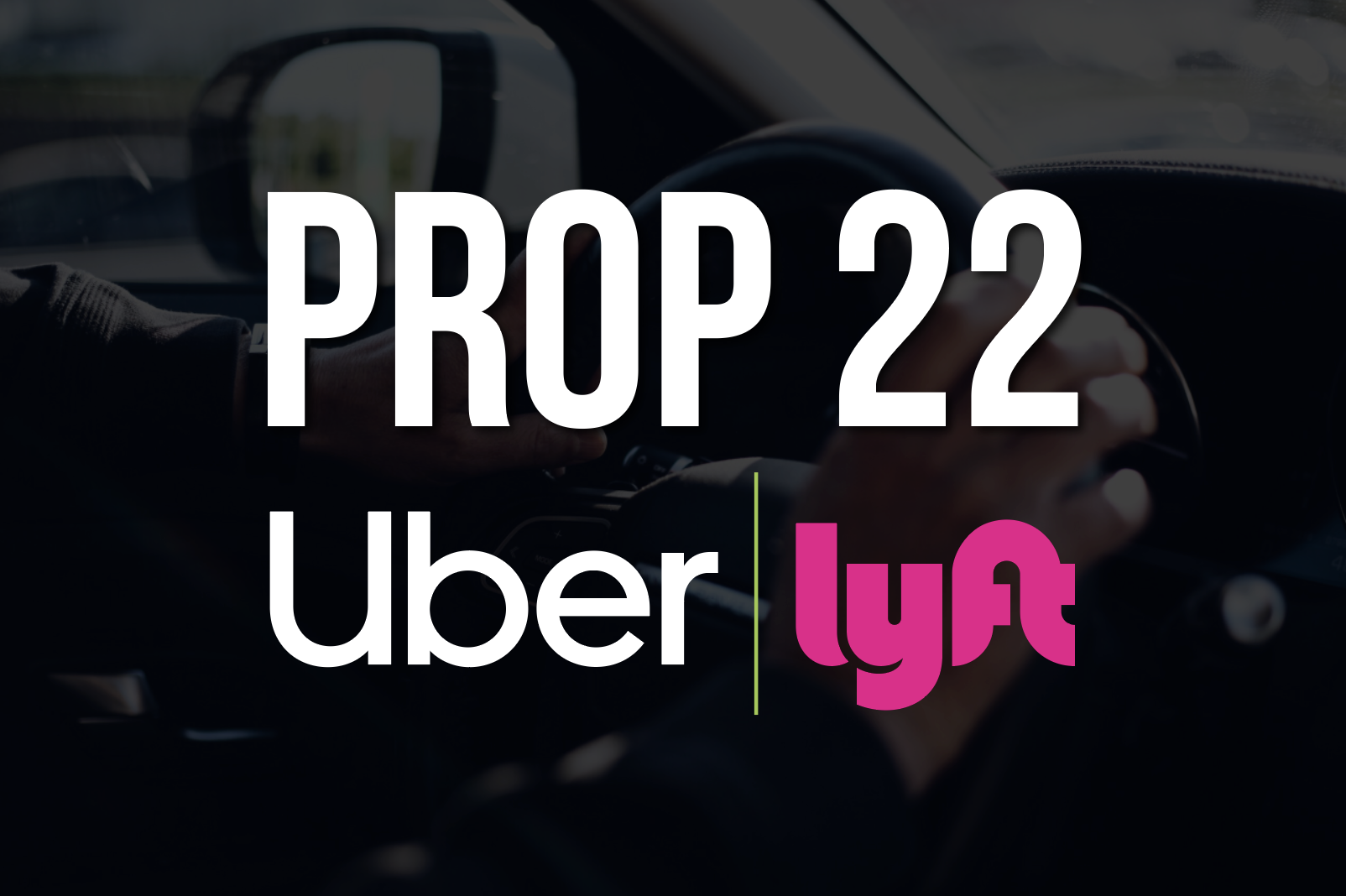Prop 22 is a current ballot measure that aims to keep rideshare drivers, delivery drivers, and other gig workers classified as independent contractors. The measure aims to undo Assembly Bill 5 (AB5), which codifies the ABC test for determining if someone is a contractor or an employee into law.
Under AB5’s rules, rideshare drivers and other gig workers would need to be classified as employees. A classification size like this would require rideshare companies to hire all California drivers as full or part-time employees, and pay employment tax on their earnings. Full-time drivers would have to be offered benefits.
Uber and Lyft have both demanded more time to comply, and hope to avoid this specific scenario by offering a different option with Prop 22. In addition, Uber’s CEO has stated they want to provide a benefits pool, but allow drivers to maintain their flexible schedule by keeping them as contractors.
How Do Drivers Feel About Prop 22?

We recently surveyed a small pool of rideshare power drivers, who drive daily or consider their rideshare work to be their “full-time” job. The pool is small, but this group of drivers are very active and in many cases long-term rideshare drivers.
Results showed that most of these power drivers want Prop 22 to pass, because a switch from 1099 work would harm their income stream. More than a third of drivers also said that while rideshare is not their primary income stream, it is necessary income for them to keep up with bills and expenses.
These drivers do not want their current livelihood to be impacted, even if they are in favor of becoming employees. For them, the benefits of a flexible schedule outweigh the perks of employment. It should be noted that many respondents have health insurance through their full-time employer, or their partner’s employer. More than a third, 38 percent, are eligible for Medi-Cal or similar insurance programs. Health insurance is one of the primary concerns for 1099 workers, but it appears that respondents largely have this need met through other means.
A clear majority, 75 percent, of respondents mentioned that if they were to become employees, this would have a negative impact on their income and life. They shared that they didn’t want to work a set schedule, and they appreciate the flexibility the apps offer. Some said they don’t want to be forced to drive at night, and others shared they would simply quit if they had to be classified as employees.
Others don’t mind the idea of being an employee, but they’re not sure why it’s happening now, and said that it seems that Uber and Lyft are being forced to do the right thing. Some felt it was a small minority driving this initiative, and said it’s unfair that a small number of drivers can force things to change for the entire group.
It seems that this group of drivers, at least, does not welcome oversight, even if perks are bundled with it. Nearly 90 percent of respondents stated that they should always have the flexibility, and 72 percent said they prefer to remain independent contractors.
“I could decide upon when I want to work and how much I make an hour wouldn’t be determined by a classified worker’s hourly wage,” said one respondent in favor of remaining an independent contractor.
However, not all respondents agreed. Some feel they’re owed benefits and better pay.
“Right now [rideshare companies] …. tell us where to go, [whether] it’s cost effective or not. And if you refuse, they penalize us. Hence, that’s not independent at all,” said a driver who feels they should be classified as an employee.
Ultimately, more than 80 percent of responding drivers said they support Prop 22. Some hope to eventually become employees of the rideshare companies or other gig-based platforms where they work, but on their own terms.
A Better Option

We did not ask drivers if they had other ideas for a solution, but perhaps we should have. As we stated in our earlier piece on Prop 22, it’s possible that neither solution being presented right now is the right one. Instead, we need to continue discussing this issue, and perhaps arrive at a unique solution that’s better for all parties.
Either way, it’s important to listen to the actual drivers out in the field on this issue, and not just the corporations they drive for.
*Drivers surveyed self-identified as rideshare drivers, and the survey was sent to all California-based drivers in Rideshare Mechanic’s database. There were 60 responses to the survey.


